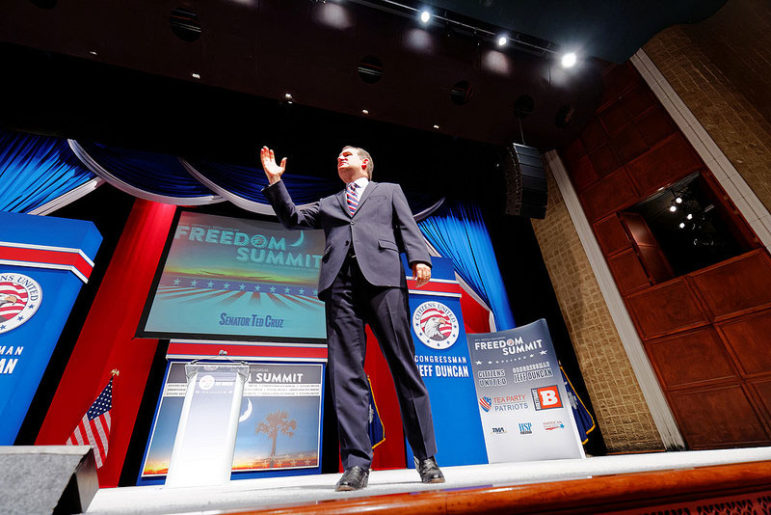
August 29, 2016; The Atlantic
Presidential campaigns used to exalt a candidate’s patriotism and public service, if not sacrifices. However, as Benjamin Soskis points out in “Charitable Judgment,” an article worth reading for its unique analysis of charitable giving over time and for its insights into the intersection today of politics and philanthropy, “Never before, though, has an election season focused so much scrutiny on one particular manifestation of such generosity: philanthropic giving.”
Soskis is a fellow at the Center for Nonprofit Management, Philanthropy, and Policy at George Mason University. He is also the co-editor of the important resource, HistPhil.org, which details the history of the philanthropic and nonprofit sectors.
This is the first presidential election in which both major party candidates have their own foundations. It’s also the first year since 1976 that not every presidential nominee (in this case, Trump) has released his or her income tax returns. Voters want to know how much as a percentage of income the candidates are giving to charity and they leave the details of where the money goes for the media to ascertain.
Of course, the hyper-scrutiny by the media that the Clinton Foundation (and the plethora of other entities related to the Foundation and the Clinton family) and the Donald J. Trump Foundation receive results mostly in accusations of corruption, exploitation, dissimulation, and prevarication, “territory where the political class is comfortable making judgments.” While a river of information gushing forth about the Clinton Foundation leads to unending suspicion (but no signs of laws being broken), Charity Navigator just awarded its highest rating—four stars—to the institution.
There is little discussion about the Trump Foundation compared to the storm that continually rages over the Clinton Foundation because it exists mostly in name only. Despite Trump’s bombast, it has no full-time staff and what little giving it does do is apparently almost entirely self-serving or worse. NPQ newswires about the Trump Foundation go back long before this election cycle. Soskis asserts that America’s tradition of keeping one’s philanthropy a private affair is used by Trump and his team to not answer queries from the media about the foundation and his own personal giving.
Sign up for our free newsletters
Subscribe to NPQ's newsletters to have our top stories delivered directly to your inbox.
By signing up, you agree to our privacy policy and terms of use, and to receive messages from NPQ and our partners.
For both Clinton and Trump, it is unclear if any of this intense scrutiny has achieved any clarity for the voters or a better understanding by the media of the conduct and impact of the candidates’ philanthropy.
Meanwhile, the boundaries between philanthropy and politics have been steadily blurring so that attention directed to one realm is almost necessarily drawn to the other. As wealthy donors have increasingly gravitated toward policy advocacy, they’ve found themselves the target of opposition research of the sort that politicians routinely endure. (The Open Society Foundations, funded by George Soros, were recently hacked, likely by the same Russian cyber-goons that hacked Democratic political organizations.) And as substantial private wealth has become a practical prerequisite to holding public office—in 2013, the median net worth of a member of Congress passed the one-million-dollar mark—the political class and the donor class have converged, as the guest-list of any Davos shindig will attest.
According to Andrew Carnegie, “It is not expected, neither is it desirable, that there should be a general concurrence as to the best possible use of surplus wealth. For different men and different localities there are different uses.” The same sentiment holds a century later for the Giving Pledge. Gates and Buffett recruit their peers to pledge at least half their fortunes to charity, but they do not attempt to influence where the personal giving is to be focused.
There has also been a rise of criticism for mega-gifts being given to the likes of Harvard and Yale. Soskis also points out that new voices for “effective altruism,” such as Peter Singer and GiveWell, explicitly push for causes they think are more worthy than others. But these examples of judging philanthropic behavior remain the exception to the rule.
Traditionally, the public has maintained that charity is a quintessentially American virtue and have expected its leaders to practice it. And yet the assumptions and attitudes that have fed the culture of giving in the United States, stemming from a fiercely held commitment to pluralism, impede judgments about the direction of that giving.
Americans want to know if candidates are philanthropic. They want to know how much the candidates give away as a percentage of their personal income more than the details about the beneficiaries of their giving. The media want to know the details and especially about any hint of self-dealing. In the end, as never before, philanthropy is influencing this presidential election.—James Schaffer













